- Home
- Conn Iggulden
Conqueror (2011) c-5 Page 29
Conqueror (2011) c-5 Read online
Page 29
‘We could circle back to the last site,’ Bayar said. ‘They won’t expect that and we need those arrows.’
Uriang-Khadai nodded wearily. Though he had gone with Tsubodai into the west, he had never known such a constant run of battles before. There had been a time when he had scorned reports of swarming Sung cities, but the reality was every bit as bad as he had been told. Kublai’s tumans had run out of gunpowder, shot and arrows, the sheer numbers of the enemy overwhelming them. Uriang-Khadai could still hardly believe they had been forced to retreat, but he had lost track of the armies they had beaten, and the one struggling to reach them was fresh and well armed. The tumans were down to swords for the most part, with even their lances broken and thrown away. Faced with new regiments racing towards them, Kublai had withdrawn at speed, seeking out the high ground.
‘Are they still there?’ Kublai asked.
Bayar stood up with a groan on aching legs, peering past the boulder. Below, he could see Sung regiments in ragged squares, seeming to inch their way up the slopes of the mountain.
‘Still coming,’ Bayar said, slumping back. Kublai swore, though it was no more than he had expected. ‘We can’t fight on this ground, you know that?’
‘I know, but we can stay ahead of them,’ Kublai said. ‘We’ll find a way out of the hills and when it’s dark, we’ll ride clear of them. They won’t catch up, not today anyway.’
‘I don’t like leaving the main camp unprotected for this long,’ Uriang-Khadai said. ‘If one of those armies comes across them, they’ll be slaughtered.’
Kublai tensed his jaw, irritated at Uriang-Khadai for reminding him. Chabi and Zhenjin were safe, he told himself again. His scouts had found a forest that stretched for hundreds of miles. The families and camp followers would have headed for the deepest part of it, as far from a road as they could get. Yet it only took one enemy tracker to spot smoke from a fire or hear the bleating of the herds. They would fight, of course. Chabi’s calm courage made his chest grow tight in memory, but he agreed with Uriang-Khadai about the outcome. A small voice within him worried as much about the stocks of arrows held in the camp. Without them, his tumans were a wolf whose teeth had been drawn.
‘You find me a way to make this Sung bastard vanish and I’ll ride back and see how they are getting on,’ Kublai said irritably. ‘Until then, we’ll just stay ahead of them and hope we aren’t riding into the arms of another noble out hunting for us.’
‘I would like to send a small, fast group for arrows,’ Uriang-Khadai said. ‘Even a few thousand shafts would make a difference at this point. Twenty scouts riding fast should be able to get past the Sung forces.’
Kublai multiplied numbers in his head and blew air out slowly. He didn’t doubt his scouts could survive the ride out, but coming back, with a quiver under each arm, one on their back, two tied to the saddle? They would be defenceless, easy prey for the first Sung cavalry to spot them. He needed more than two thousand arrows. He needed half a million at a minimum. The best stocks of fletched birch shafts lay on battle-fields for fifty miles behind them, already warping from damp and exposure. It was infuriating. He had prided himself on his organisation, but the Sung armies had just kept coming, giving his men no time to rest.
‘We need to find another city, one with an imperial barracks,’ he said. ‘They have what we need. Where are the maps?’
Bayar reached inside his tunic and pulled out a sweat-stained sheet of goatskin, dark yellow and folded many times, so that whitish lines showed as he opened it out. There were dozens of cities shown on the map, marked in characters painted by some long-dead scribe. Bayar pointed to one that lay beyond the range of mountains where the tumans sprawled in exhaustion.
‘Shaoyang,’ he said, jabbing a finger at it. Sweat dripped as he leaned over, so that dark spots appeared on the material. With a curse, he wiped his face with both hands.
‘That’s clear then,’ Kublai said. ‘We need to reach this city, overcome their garrison and somehow get to their stores of weaponry before the army behind catches up, or the population turns out and finishes us.’ He laughed bitterly to himself.
Uriang-Khadai spoke as Kublai leaned back. ‘There is a chance the garrison is already out,’ he said thoughtfully. ‘For all we know, we may have already beaten them. Or they could be out looking for us, like every other Sung soldier in the region.’
Kublai sat up, struggling to think through his exhaustion.
‘If they’re in place, we could draw them away. If we sent a few men into the markets with information to sell, maybe. Rumours of a Mongol army fifty miles in the wrong direction would surely bring the garrison out. We know by now there are standing orders to attack us on sight. They could not remain in the city with the right bait.’
‘If they are there at all,’ Uriang-Khadai agreed.
‘If they ignore the news, we will be waiting to enter a hostile city, with another army coming up fast behind us,’ Bayar pointed out. He was surprised to be the one urging caution, but Uriang-Khadai seemed to be caught up in the idea.
Kublai stood up, stretching his aching legs and looking down the mountain to the Sung regiments plodding after them. The ground was so broken with its clumps and hillocks of grass that they could not move any faster than those they chased. He could be thankful for that at least. He felt his head clear with the movement and gave a low whistle to the closest minghaan officers, jerking his head in the direction of travel. It was time to move on again.
‘You know I’d love to get into their stores,’ he said, ‘but even if the garrison is already out, the prefect of the city won’t let us just walk in and take what we need.’
‘The citizens of Shaoyang won’t know how the war is going,’ Uriang-Khadai said. ‘If you gave them the chance, he might surrender to you.’
Kublai looked closely for some sign of mockery, but Uriang-Khadai’s face was like stone. Kublai grinned for a moment.
‘He might,’ he agreed. ‘I’ll think about it as we go. Come on, the ones following are getting too close. What do you say to a fast ten miles over the peak to put some distance between us?’
All those who heard made some groaning noise at the prospect, but they lurched to their feet. With the ground so broken, it was all they could do to stop the Sung regiments below snapping at their heels.
Mongke hated sieges, but without a massive force of catapults and cannon, he faced the same problems Genghis had once known. Cities were designed to keep out marauding armies such as his, though for once they were not his main objective. Somewhere to the south, Kublai was engaging the Sung armies. Mongke would have liked to smash down the walls of the cities he passed, but his primary aim was to reach Kublai. It suited his purposes well enough if every city barred its gates against him - and the garrisons stayed safely inside. His problem lay in the supply line, which grew more and more vulnerable with every mile he rode south. Cities who hid from a quarter of a million warriors would not mind sallying out against a long line of carts, guarded by just a few thousand. When the line broke somewhere behind him, he had been forced to reduce the rations. He had sent scouts out for well over a hundred miles to report any herds he might snap up. It was one resource the Sung cities could not protect behind their walls, and as he entered a region of rich grassland Mongke saw so many cattle that his supply lines became unnecessary. For a glorious few days, his men feasted on charred beef still dripping with blood, putting back some of the body fat they had lost in hard riding. In its way, the problems of a campaign were equal to anything Mongke had dealt with in Karakorum, but he took more satisfaction in simple obstacles he could face and overcome.
As he went on, Mongke noted the cities he would return to when he had finished sweeping through the south with Kublai. He looked forward to seeing his brother more and more, imagining Kublai’s face when he saw the host Mongke had brought to support him.
Towns were easy prey compared to the great cities. Mongke’s tumans could fell trees and leave stubs of branch
es in just a morning, using them as rough ladders to climb lesser walls. Yet even then, Mongke had let hundreds of towns survive intact while his tumans swept on. They would keep until his return.
A little more than a month had passed since entering Sung lands when his outlying scouts reported a huge Sung army marching south with banners flying. The news spread through the tumans as fast as Mongke heard it himself, so they were ready to move when he raced to his horse. No infantry alive could stay ahead of them for long and his tumans were eager to fight.
His twenty-eight tumans followed the scout’s directions at full speed, sighting the enemy at evening three days later. Mongke was pleased to see they were less than half the size of his force. For once his generals would not have to think their way around an army that outnumbered them. It had always been his plan to bring a bigger hammer to the Sung than anyone had managed before. The Sung emperors had survived Genghis, Ogedai and Guyuk. They would not survive his own khanate.
As night fell, the tumans herded their spare mounts behind them. If the enemy attacked in the dark, the animals were likely to panic and stampede, or at the least get in the way of a counter-charge. They chewed sticks of dried beef to a soft mush and washed it down with airag or water, whichever they had to hand. The warriors wrapped reins around their boots and lay down on the damp grass to sleep. Every man there knew they would be off before dawn and fighting at first light.
As the camp settled, Mongke’s servants created a ger for him, taking the felt and spars from half a dozen packs. While they worked in the moonlight, he lay out a thin blanket and knelt on it, pulling his deel robe closer over his armour to keep him warm. He could see his breath as mist and he slowed his heart, letting the cares of the day ease from him. With the stars achingly clear overhead, he spent a moment praying to the sky father for the battle to go well, for Kublai to be safe, for the nation to prosper. Even in his private prayers, he thought as a khan.
He did not want to enter the ger they had prepared for him. Sleep was very far away and he felt strong and at peace. The dew had frozen on the grass so that he could hear every whispering footstep from his guards as they walked their shift. Mongke was surrounded by his people. He could hear them snoring, calling out in their sleep and mumbling to themselves. He chuckled as he stretched out on the blanket, deciding to spend the night under the stars like the rest of the warriors.
He woke in silence, with his head hidden in the crook of his arm. The cold ground seemed to have reached into him so that he could hardly move for stiffness. He felt his neck crunch as he sat up and rubbed his hands over his face. A shadow moved nearby and Mongke’s right hand darted for his sword in the scabbard, half-drawing the blade before he realised whoever it was held out a bowl of tea to him.
He smiled ruefully at his own nerves. The camp was coming to life around him, though dawn was still some way off. Horses suckled waterskins held high for them, though they would have found moisture in the frozen dew. There was movement everywhere and Mongke sipped his tea, letting the anticipation grow within him. He could not leave anyone alive from the Sung force marching ahead of his tumans. As tempting as it was to spread terror with a few survivors, he needed to use the speed he could bring to the battlefield. His task was to push the men and animals to their limits, crushing a vast track south and running ahead of the news until he had Hangzhou in sight. The Sung would have no time to entrench and prepare for him. Kublai had cannon, two hundred good iron weapons. Mongke would use those to smash down the emperor’s city.
He rose to his feet and stretched, wondering at the strange mood that had led him to sleep on the frozen grass. There was still frost in his hair and he rubbed at the strands with one hand while he finished the tea. He could feel the salt and heat hit his empty stomach and he sighed at the thought of cold meat to break his fast.
His horse was made ready by servants, already fed and watered with its coat brushed to a gleam. Mongke walked over to inspect the animal’s hooves, though it was just old habit. Some of the men were already mounted and waiting, sitting idly in the saddle and talking to their friends around them. Mongke accepted a thick wedge of stale bread and cold lamb, with a skin of airag to wash it down his throat.
‘Do you want to discuss tactics, my lord khan, or shall we just ride right over them?’
His orlok, Seriankh, was smiling as he spoke. Mongke chuckled through a mouthful. He looked up at the brightening sky and breathed deeply.
‘It will be a fine morning, Seriankh. Tell me what you have in mind.’
As befitted a senior officer, Seriankh responded without hesitation, long used to making quick decisions.
‘We’ll ride their flanks at the limit of their arrow range. I don’t want to surround them and make them dig in. With your permission, I’ll make a three-sided box and match their pace. The Sung cavalry will try to break out and stay mobile, so we’ll take them first with lances. For the infantry, we can cut them from behind, working our way up to the front.’
Mongke nodded. ‘That will do. Use the bows first, before the young men go in hand-to-hand. Keep the hotheads back until the enemy is reeling. There aren’t so many of them. We should be finished with this by noon.’
Seriankh smiled at that. It was not so long ago that a force of a hundred thousand would have been a battle to the last man, a bloody and desperate struggle. The force of tumans Mongke had brought had never been seen before and all the senior men were enjoying themselves with such strength at their backs.
Somewhere nearby, Mongke heard a jingle of saddle bells and he cursed softly. Another yam rider had caught up. Without the way stations to change his horse, he would have ridden to exhaustion to bring his letters.
‘I am never left alone,’ Mongke muttered.
Seriankh heard.
‘I could lose a yam rider at the rear until the battle is over,’ he said.
Mongke shook his head. ‘No. The khan never sleeps, apparently. Isn’t that what they say? I know I sleep, so it is a mystery to me. Form the ranks, orlok. Command is yours.’
Seriankh bowed deeply and strode away, already issuing orders to his staff that would ripple down to every warrior in the tumans.
The yam rider was so caked in dust and mud as to appear almost one with his horse. As he dismounted, fresh cracks appeared in the muck that covered him. He wore only a small leather pack across his shoulders and he was very thin. Mongke wondered when the man had last eaten, without yam stations to keep him going in Sung lands. There would have been little or nothing to scavenge in the wake of the tumans, that much was certain.
Two of the khan’s guards approached the rider. He looked surprised, but stood with his arms outstretched and his palms visible as they searched him thoroughly. Even the leather pack was opened, its sheaf of yellow papers handed to the rider before it was tossed down. He rolled his eyes at such caution, clearly amused. At last they were finished and turned away to mount with the rest. Mongke waited patiently, his hand outstretched for the messages.
The yam rider was older than most, he saw, perhaps approaching the end of his career. He did indeed look exhausted through the grime of hard riding. Mongke took the sheaf from him and began to read, his brow creasing in puzzlement.
‘These are stock lists from Xanadu,’ he said. ‘Have you brought me the wrong pack?’
The rider stepped closer, peering at the pages. He reached for them and Mongke didn’t see the thin razor he had kept concealed between his outstretched fingers. It was no wider than a finger itself, so that just the very edge of it glinted as he drew it sharply across Mongke’s throat, forward then back. The flesh opened like a seam under tension, a white-lipped mouth that spattered them both with blood.
Mongke choked and raised his right hand to the wound. With his left, he shoved the man away so he fell sprawling. Shouts of rage and horror went up and a warrior threw himself from the saddle at the khan’s attacker as he tried to scramble up, pinning him to the ground.
Mongke felt the warmth
pouring out of him, leaving his flesh like stone. He stood, his legs locked and braced against the earth. His fingers could not hold the wound closed and his eyes were desperate. Men were shouting everywhere, racing back and forth and calling for Seriankh and the khan’s shaman. He could see their open mouths, but Mongke could not hear them, just a drum pulsing in his ears and a rushing sound like water. He eased himself down to a sitting position, showing his teeth as the pain grew. He was aware of someone binding a strip of cloth around his neck and hand, pressing hard on the wound so that he could not breathe. He tried to fight them off, but his great strength had deserted him. His vision began to constrict and he still could not believe it was truly happening. Someone would stop it. Someone would help him. His skin grew pale as blood left him in a pulsing stream. He sagged to one side, his eyes growing dull.
Seriankh stood over him, his eyes wide with shock. He had spoken to the khan only moments before and he stared in disbelief at the twisted figure with the right hand bound into bloody bandages tied tightly around the throat. Blood was sinking into the grass, making it black and wet.
Seriankh turned slowly to see the yam rider. His face had been smashed in by fists while Mongke died. His teeth and nose were broken and one of his eyes had been speared by a thumb. Even so, he laughed at Seriankh and spoke in a language the orlok did not know, his slurred speech sounding triumphant. His cheeks were pale under the dirt, Seriankh saw, as if he had shaved a beard and revealed skin long hidden from the sun. The Assassin was still laughing as Seriankh had him bound for torture. The Sung army was forgotten as Seriankh ordered braziers and iron tools made ready. The Mongols understood both suffering and punishment. They would keep him alive as long as they could.
CHAPTER TWENTY-SEVEN
Kublai stared as he trotted along the road to Shaoyang. The city was deep into the Sung heartland and he suspected it had not been attacked in centuries. Instead of a solid outer wall, it sprawled over square miles, a central hub surrounded by smaller towns that had grown together over centuries. It made Xanadu look like a provincial town and even Karakorum would have been lost in it. He tried to make an estimate of the numbers of people who must live in such a vast landscape of buildings, shops and temples, but it was too much to take in.

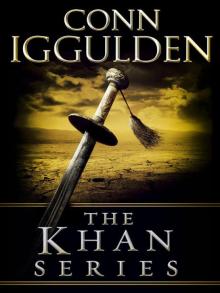 The Khan Series 5-Book Bundle
The Khan Series 5-Book Bundle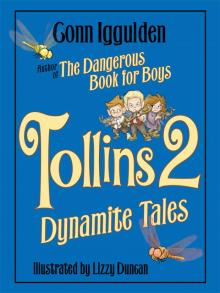 Tollins 2: Dynamite Tales
Tollins 2: Dynamite Tales Tollins: Explosive Tales for Children
Tollins: Explosive Tales for Children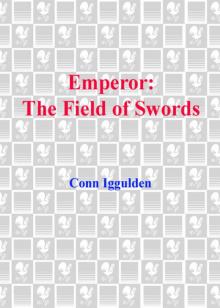 The Field of Swords
The Field of Swords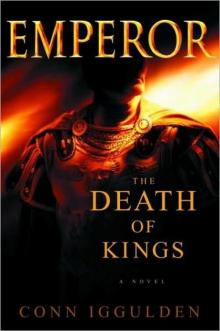 The Death of Kings
The Death of Kings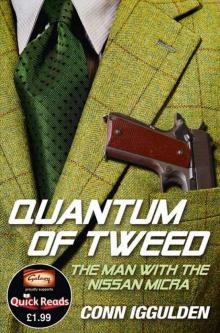 Quantum of Tweed: The Man With the Nissan Micra
Quantum of Tweed: The Man With the Nissan Micra Bones of the Hills
Bones of the Hills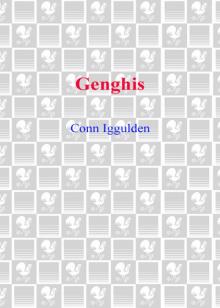 Genghis: Birth of an Empire
Genghis: Birth of an Empire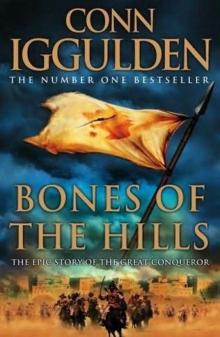 The Gates of Rome
The Gates of Rome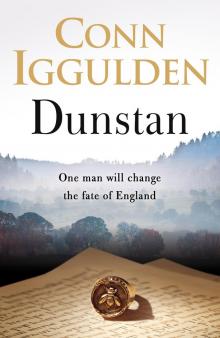 Dunstan
Dunstan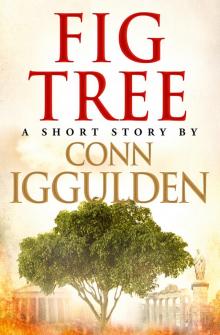 Fig Tree
Fig Tree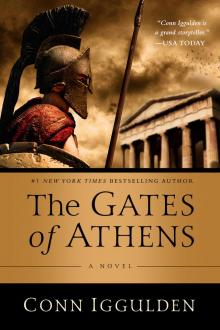 The Gates of Athens
The Gates of Athens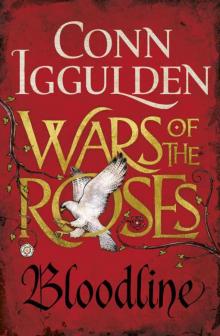 Stormbird
Stormbird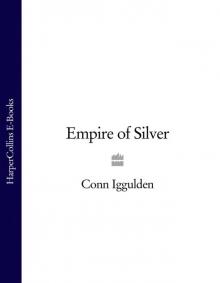 Khan: Empire of Silver
Khan: Empire of Silver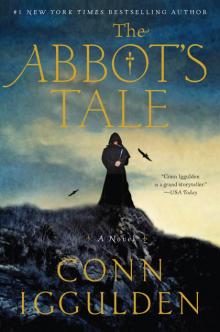 The Abbot's Tale
The Abbot's Tale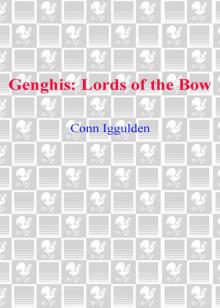 Gengis: Lords of the Bow
Gengis: Lords of the Bow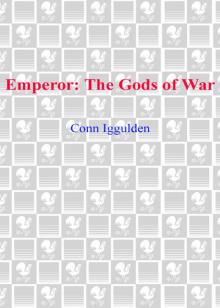 The Gods of War
The Gods of War Blackwater
Blackwater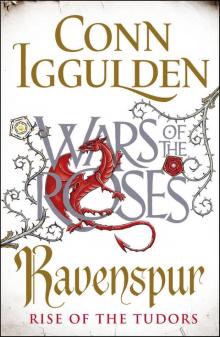 Ravenspur: Rise of the Tudors
Ravenspur: Rise of the Tudors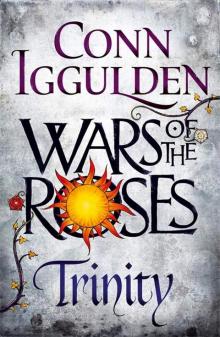 Wars of the Roses: Trinity (War of the Roses Book 2)
Wars of the Roses: Trinity (War of the Roses Book 2)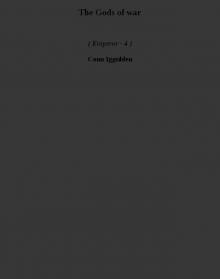 The Gods of war e-4
The Gods of war e-4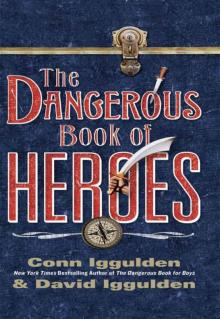 The Dangerous Book of Heroes
The Dangerous Book of Heroes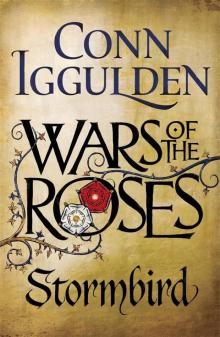 Stormbird wotr-1
Stormbird wotr-1 Emperor: The Death of Kings
Emperor: The Death of Kings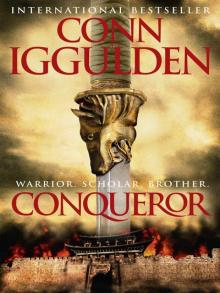 Conqueror (2011) c-5
Conqueror (2011) c-5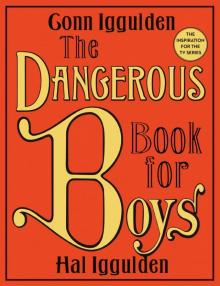 The Dangerous Book for Boys
The Dangerous Book for Boys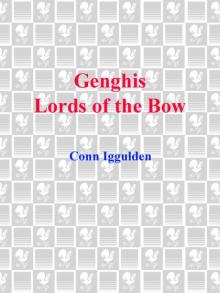 Genghis Lords of the Bow
Genghis Lords of the Bow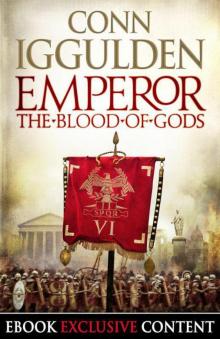 Emperor: The Blood of Gods (Special Edition) (Emperor Series, Book 5)
Emperor: The Blood of Gods (Special Edition) (Emperor Series, Book 5)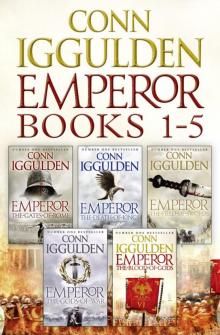 The Emperor Series: Books 1-5
The Emperor Series: Books 1-5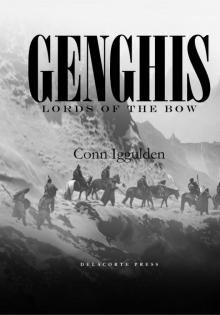 Lords of the Bow c-2
Lords of the Bow c-2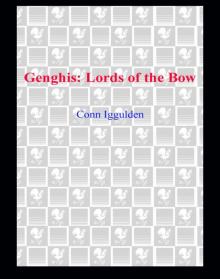 Lords of the Bow
Lords of the Bow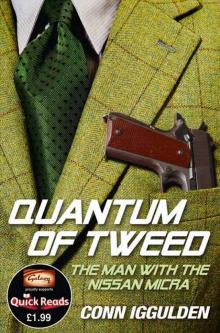 Quantum of Tweed
Quantum of Tweed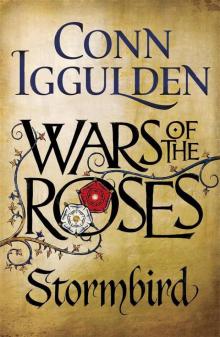 Wars of the Roses 01 - Stormbird
Wars of the Roses 01 - Stormbird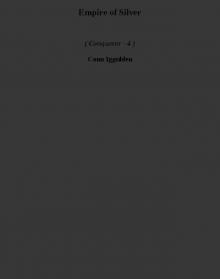 Empire of Silver c-4
Empire of Silver c-4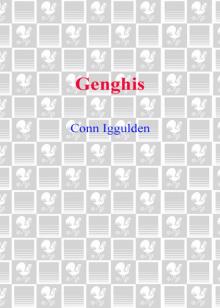 Birth of an Empire
Birth of an Empire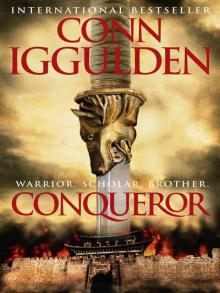 Conqueror (2011)
Conqueror (2011)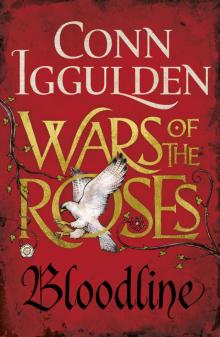 Wars of the Roses: Bloodline: Book 3 (The Wars of the Roses)
Wars of the Roses: Bloodline: Book 3 (The Wars of the Roses)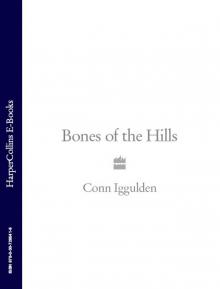 Bones Of the Hills c-3
Bones Of the Hills c-3 Empire of Silver
Empire of Silver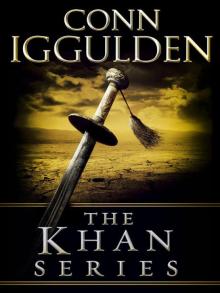 The Khan Series 5-Book Bundle: Genghis: Birth of an Empire, Genghis: Bones of the Hills, Genghis: Lords of the Bow, Khan: Empire of Silver, Conqueror
The Khan Series 5-Book Bundle: Genghis: Birth of an Empire, Genghis: Bones of the Hills, Genghis: Lords of the Bow, Khan: Empire of Silver, Conqueror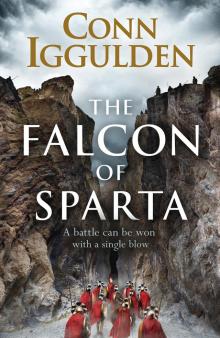 The Falcon of Sparta
The Falcon of Sparta Explosive Tales for Children
Explosive Tales for Children